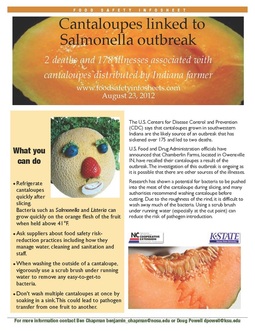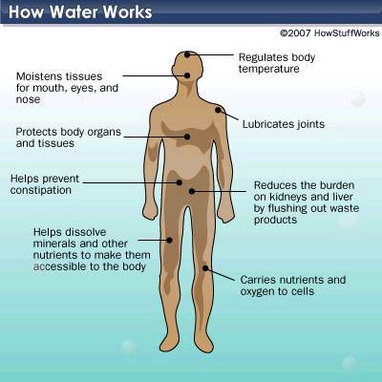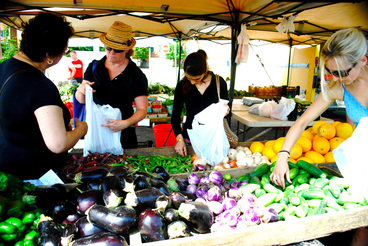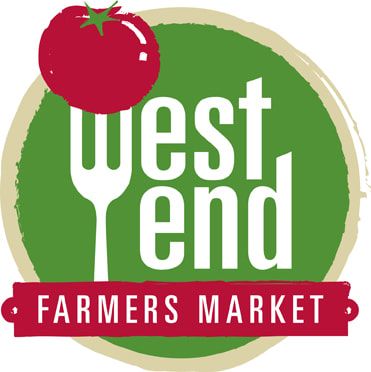|
At least once or twice a year, tucked in between a report about two political leaders having a discussion and That Celebeutante's latest brush with the law, there's a wee bitty piece about some foodborne illness outbreak. First, they begin with something to the effect of "Despite encouragement from our mothers to consume more (blank), we might want to steer clear of this particular produce for the immediate future." Then, they go on to very blandly tell us that some cases of salmonella have been reported somewhere and to refrain from eating it until the FDA gives us an all clear, which rarely happens because in two weeks the next scandal has wiped any mention of disease from our minds.  Click image to view Ignorance is definitely not bliss if you fall victim to either salmonella or listeria, two common foodborne illnesses. A recent outbreak which has been linked to cantaloupes has resulted in two deaths this season. Always remember to wash your fruits and veggies before eating them, not only for disease prevention but to get rid of any critters and particulates which may have hitched a ride on your broccoli. Disease isn't harbored only in growing, it can be picked up by improper handling, storage and transport. Before you cut into the last of the summer's melons, give the outside a good scrub (with a scrubber, not your palm). Why? Pathogens can be tracked in by a knife, and that knife can cross contaminate if it is not adequately cleaned. Although tasting fresh produce is part of the charm of farmer's markets, salmonella and listeria flourish in temperatures over 41 C. So, for the sake of everyone's health, we've made this little PSA and hope everyone takes away something more than "AVOID" and learns a thing or two about food safety. Let's play an end-of-summer drinking game you guys. You can play all the time, driving or not, in the morning, at work and the best part is that if you play you win every time. Go down to your local mass retailer, grab the prettiest water bottle you can find and hang on to that sucker all year long. Our drink of choice will be water, the most vital substance to life, and the only side effects* are glowing skin, healthy kidneys and a happy tummy.  Image from howstuffworks.com First, some reasons to play: A person can live without food for weeks depending on their Body Mass Index. In a starvation scenario, body fat can be burned for energy but once it is expended the muscle mass begins to suffer. And, since many vital organs are muscles, expiration is usually next. Of course, this is assuming the person has access to water. Without it, however, things become far more serious. An average of 1.5 liters is lost daily in bodily fluids. On hot days, that volume accounts only for sweat and if you're not drinking enough, dehydration can set in in a matter of hours. It starts as a mild headache and lack of sweat, things that can can be easily brushed off. But with no water at all even the healthiest person would be in trouble after 4 days, and that's after the nausea, vomiting and shock. Even though water gets more advertising during the hotter months, it is by no means a seasonal beverage. You don't need the famous "eight glasses a day" since eating regular food will cover a chunk of that intake. Just remember that water is a calorie, fat, sugar, and sodium free way to keep healthy, something many other drinks can't say the same about themselves. Before you reach for a cup of coffee in the morning, do like the Italians and grab a glass of water. "But why if coffee is mostly water?" you might ask. Yes, but caffeine is a diuretic which is why every soda hater tells you that those drinks will dehydrate you. When you eliminate fluids, especially after a fast (which sleep is) you are missing some of the water needed to do the things in the above diagram, taxing your body first thing in the morning which won't help the rest of the day run smoothly. "But isn't fluid retention a bad thing?" Fluid retention is often caused by vitamin deficiencies, an excessively salty diet and many medications, and drinking water actually helps to get rid of it. Despite it's commonness, it's a symptom for more serious things as well, so it's not something to be ignored. Let's imagine a latte in the morning, a Coke with lunch, cranberry juice as a healthy refresher and some iced tea with dinner- the water goes right through you and what's left behind are fats from milk, sugars (natural or not) and caffeine. Try this instead: get that fancy pants bottle, fill it and drink some at a stop light, whenever Carly Rae Jepsen is on the radio (which, btw, is all the time), and during other quotidian events. Make up your own rules. Get your youngsters to play with you. Think of the cash saved from the aforementioned list of drinks. Let's say a latte is $2.50, a vending machine Coke and juice total $3.00 and a home-brewed iced tea is $0.50. That's six dollars a day, times five days in a work week, giving you a bonus $30 at the end of each week. Don't touch it for a year and now it's $1560, or a relaxing four day cruise in the Caribbean for two- meals included. That's right. Start now and next summer's vacation is paid for. *Too much of anything, even something as good as water, can be harmful. Don't overdo it or you run the risk of diluting your blood which can be fatal.  They say that first you eat with your eyes. Food can look wonderful but in the wrong hands, it could be a less than pleasant experience. Even then, in the hands of a professional, lackluster ingredients can't perform the same way that it's gourmet counterparts could. Still, this is only referring to the physical qualities of food, nutritional (and monetary) value is a whole other battle to be waged in the grocery. Yes, ladies and gentlemen. Shopping is a crucial part of food prep, and not just because you need ingredients to cook. Food should not only taste good, it also needs to be good for you. Smart consumerism is often taken to mean getting the most bang for your buck, but as Kerrie Martin, a certified Holistic Health Coach, and Penny Capps, a certified Massage Therapist and Personal Trainer, want us all to know that when it comes to your health quality is far more important than quantity. As a part of their discussion series "Making Food Choices Count", the duo held a casual field trip at our very own market. The group was eager to explore, shop and learn more about the things offered by farmer's markets, as well as the buzzwords attached to them. So, armed with reusable grocery bags and a ton of questions, they got hands-on with their food. |
West End Farmers Market
|


 RSS Feed
RSS Feed
